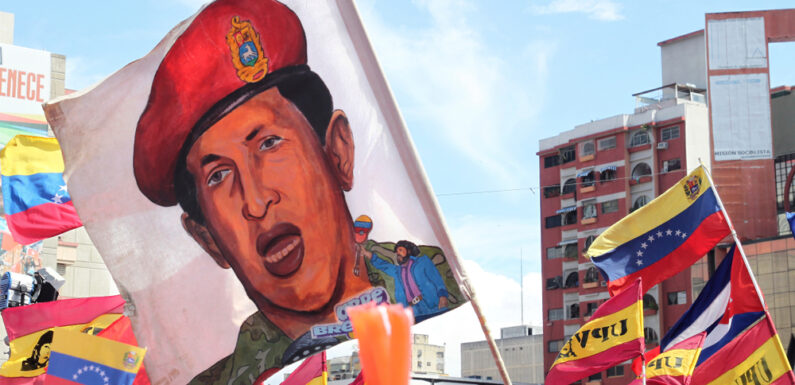
On Sunday, Nicolas Maduro was announced as the President of Venezuela after winning the election. The results were announced by the National Electoral Council’s President, Elvis Amoroso, who declared Mr Maduro Venezuelan president, serving for the third term.
Nicolas Maduro Wins Venezuela Election
The council stated that Maduro secured 51% of the votes while his rival Edmundo Gonzalez obtained 44%. Amoroso noted that 80% of the votes were counted on Sunday at midnight despite delays caused by the electoral data transmission systems.
Shortly after announcing the election outcome, the opposition led by Mr Gonzalez refused the result. They claimed to unseat Maduro, citing the tallies from 40% of the national ballot boxes.
The opposition leader, Maria Corina Machado, stated the country has peacefully chosen a change in the administration. The official claimed that the result was 80% of the votes, which was unconstitutional.
Opposition Leaders Challenges President Maduro Win
Elsewhere, the US Secretary of State Antony Blinken urged the Venezuelan electoral council to publish a detailed report showing the vote tabulation to enhance transparency and accountability.
The legislators claimed that Maduro’s reelection did not reflect the will of the Venezuelans. Blinken advised the Venezuelan electoral council to count every vote fairly and transparently.
He claimed that the international political observers were keen on counting the Venezuelan votes. The council has been urged to share the election tabulation with the opposition and independent observers.
On the contrary, President Maduro applauded the electoral council for conducting a fair and transparent election. Maduro claimed that the hackers had attempted to compromise the national electoral system. He claimed that a group of hackers planned to launch a massive hack to interfere with voting.
Global Leaders Express Concern of Venezuela Election Results
His speech attracted criticism from global leaders. On X, the President of Chile, Gabriel Boric, urged Maduro and his team to accept the election outcome. He claimed that Santiago would not recognize Venezuela’s election results since they were not verified.
In support of President Boric’s remarks, the President of Uruguayan, Luis Lacalle Pou, described the Venezuelan election as an open secret with the likelihood of President winning his reelection.
Subsequently, the President of Guatemala, Bernardo Arevalo, expressed concerns about the Venezuelan election results.
On X, the President of Argentina, Javier Milei, thought the Maduro dictatorship was ending. Elsewhere, the US democrat presidential nominee Kamala Harris vowed that the Americans would stand with the people of Venezuela as they expressed their voices through the election.
Harris announced that the will of the Venezuelans must be respected to make the South American country democratic and prosperous.
On the contrary, Maduro’s win was positively welcomed by Bolivia, Cuba, and Honduras presidents. However, if the country’s electoral council verifies the election results, then M Maduro will serve for a third term.
Reviewing Venezuela’s Economic Performance
Under his previous regime, over 8 million Venezuelans fled the South American country due to unfavourable international sanctions and economic crises. President Maduro implemented various control measures to promote economic growth.
Earlier this year, the Maduro administration introduced a state-owned crypto Petro to support the stability of the national currency. The Venezuelan suspended the use of Petro after failing to attain the intended purpose.
The economic crises in Venezuela have forced the public to shift to crypto investment. According to Chainalysis, Venezuela ranks among the remittance-dependent countries receiving over $460 million in crypto from families abroad.
Editorial credit: testing / Shutterstock.com



